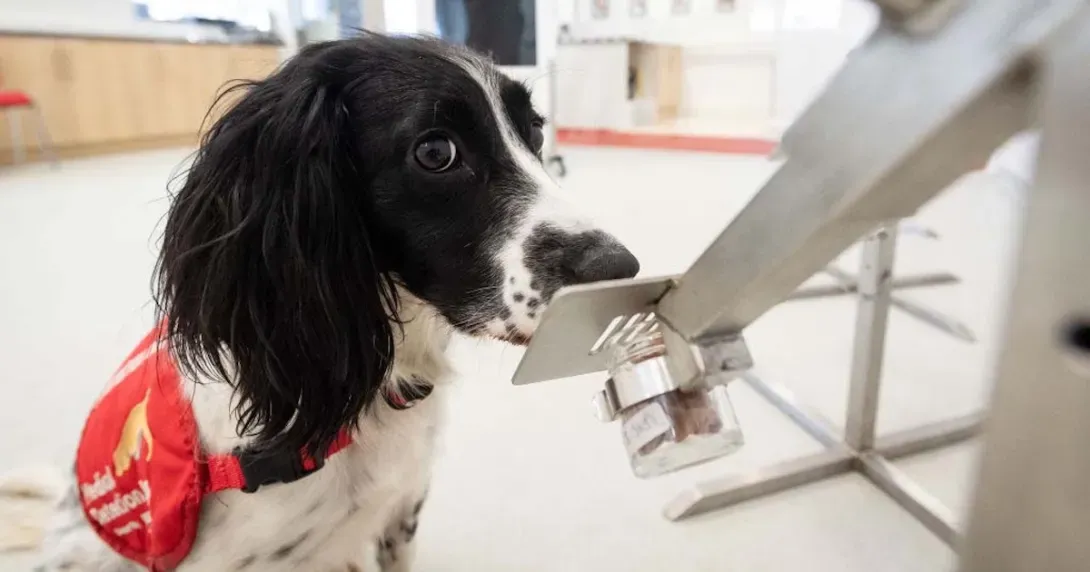
Photo: Leon Neal/Getty Images
Hackensack Meridian Health is partnering with SpotitEarly for early cancer detection using AI and trained dogs.
The dogs are able to detect changes in odor, which can indicate disease before people notice symptoms.
Clinical research and a trial will be done by the Hennessy Institute for Cancer Prevention and Applied Molecular Medicine, part of the Hackensack Meridian John Theurer Cancer Center, which is part of the National Cancer Institute-designated Lombardi Comprehensive Cancer Center at Georgetown University and Hackensack University Medical Center.
SpotitEarly’s early cancer detection uses trained canines and AI to identify cancer odor signatures in breath samples. SpotitEarly is expected to introduce a breath collection process involving an at-home face mask kit.
WHY THIS MATTERS
An estimated 40% of Americans are diagnosed with cancer at some point in their lives, according to information released by SpotitEarly.
The partnership aims to decrease the number of late-stage diagnoses and increase survival rates by giving patients a more accessible way to detect cancer early.
SpotitEarly has developed a breath-based, at-home test starting with breast cancer that uses the olfactory abilities of trained dogs combined with its proprietary AI platform LUCID to analyze and detect cancer odor signatures found in a patient’s volatile organic compounds.
The clinical research of the Hennessy Institute and Hackensack Meridian Health is being used to validate the technology.
Only one in seven cancers is found by a recommended screening test, according to 2022 research from the University of Chicago.
“Less than 15% of all cancers in the U.S. are diagnosed through a recommended screening protocol,” said Shlomi Madar, CEO of SpotitEarly.
The partnership with Hackensack Meridian Health is a first step toward making the technology available in the United States, Madar said.
The research collaboration will begin with the launch of the PINK Study, a 2,000-participant multicenter, double-blind observational study focused on breast cancer detection. The trial will enroll up to 500 women currently undergoing mammograms or biopsies for breast cancer detection at Hackensack Meridian Health.
It will be led by breast cancer and cancer genetics specialist Dr. Elias Obeid, the medical director of the Hennessy Institute.
"Early detection is critical in the fight against breast cancer,” Obeid said.
"Almost two-thirds of cancer diagnoses have no screening test. At Hackensack Meridian John Theurer Cancer Center, we are deeply committed to early cancer detection – the ultimate way to improve patient outcomes," said Dr. Andre Goy, physician-in-chief and vice president of Oncology at Hackensack Meridian John Theurer Cancer Center.
THE LARGER TREND
While the initial focus of the research collaboration will be on breast cancer detection, there are future plans to broaden research to include other cancer types, such as lung and prostate.
SpotitEarly launched into the U.S. market in May with $20.3 million in funding from Menomedin VC, Jeff Swartz (former CEO of Timberland), Avishai Abrahami (CEO of Wix.com), Hanaco VC and others.
Email the writer: SMorse@himss.org